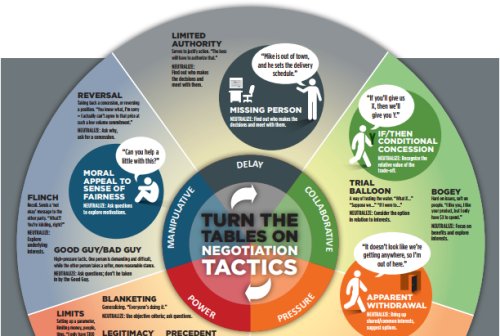Escalation can be a highly effective negotiation strategy. Having unlimited authority in a negotiation can seem, and is, powerful, but it can be equally dangerous. If your client thinks that you have unlimited authority, he or she can read that as a green light to keep driving for more.
Before the negotiation, don't make assumptions. Confirm that the client you are negotiating with has the authority to make decisions. If you learn that the client doesn't have the authority, STOP negotiating, find out who does, and politely request access to the person with the power.
If you can't get that, you will most likely be in the uncomfortable and dangerous position of being the only person in the room with the authority to make concessions. At that time or any time during the negotiation, if your client mentions that he or she must confer with someone else on a negotiation point, it often makes sense to mention that you too must confer with someone on your team.
When you are negotiating, for example, with two clients and one excuses himself or herself from the negotiating, before he or she leaves, check that the person left behind to negotiate has the full authority to continue and make decisions necessary to reach an agreement.
When you find that you must position an escalation, reinforce that you know both you and the client are working to reach agreement and your desire to work through the issues.
While your goal is to go as far as you can in a negotiation, knowing when and how to escalate can help you create Win-Win deals and protect you from entering into Win-Lose ones.
